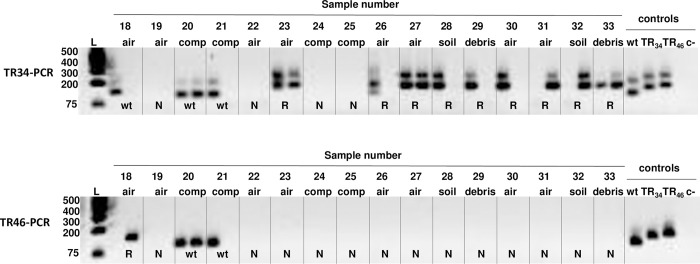Fig 3. Gel image of 16 of the environmental samples, including air, compost (comp), soil, and plant debris (debris), assayed by TR34-PCR and TR46-PCR.
Sample numbers above each lane correspond with samples in Table 1. DNA was extracted from each sample which was processed in duplicate for the nested PCR assays. Samples showing bands in one or both replicates were considered positive for A. fumigatus. The 2.5% agarose gel allows the differentiation of the wt allele from the TR34 and TR46 resistance alleles. Samples with the A. fumigatus wt allele for the cyp51A promoter yield PCR products of 100 bp and 103 bp for TR34-PCR and the TR46-PCR, respectively. Samples with the resistant alleles produce PCR products that are 134 or 146 bp for TR34-PCR or 137 or 149 bp for TR46-PCR. These samples are considered resistant (R) and undergo high-definition electrophoresis on a 4% gel to distinguish the TR34 and TR46 alleles. Samples without an amplification product were considered negative (N).

